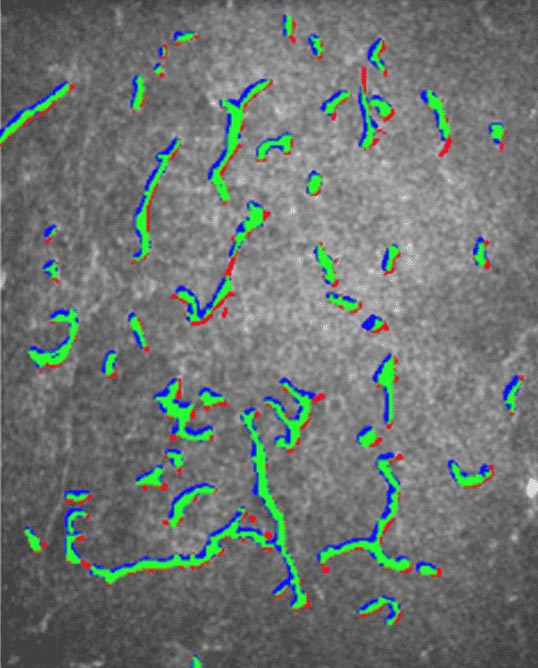Dendritic cells are a type of antigen-presenting cells and have an integral part in the normal functioning immune system, in that they help to initiate primary immune response. Dendritic cells are typically present in tissues that come in contact with the external environment. That includes the skin, the nasal cavity lining, the lungs and parts of the digestive tract.
Segmentation of Dendritic Cells with Deep Learning
RSIP vision has developed a set of artificial intelligence tools to find, detect and track dendritic cells. Due to dendritic cells being an integral part of primary immune response, one might assume that they help the immune system fight against tumor cells thanks to their ability to present tumor antigens. However, tumor-associated dendritic cells are generally badly defective and they even contribute to immunosuppression in malignant diseases. Therefore, investigation and analysis of tumor-associated dendritic cells have become a major field of interest in search for cancer treatments. It is now known that they may have an impact on disease progression and their infiltration to the tumor increases immune response.
RSIP Vision has developed (in cooperation with others) computer vision-based tools which have shed light on the behavior of these very important cells in relation to Dry Eye Disease (DED). An AI module was developed for detection of cells using in vivo confocal microscopy (IVCM) of the human cornea. The application was carried out on corneal dendritic cells to assess the inflammation level, by visualizing the density of immune system cells that promote inflammation. Usually, classification of these cells in IVCM images is done manually, which makes it an extremely time-consuming operation which is also prone to interpretive errors based on the experience level of the examiner. Hence, RSIP Vision has developed automated convolutional neural networks (CNN) for detection and quantification of dendritic cells. These CNNs proved to be very efficient in detecting the cells, as they did it with high accuracy, objectiveness and fast. This process eliminates the risk of interpretation errors, the consequences of which could adversely affect timely diagnosis and effective prognosis.
These algorithmic tools are supplied today by RSIP Vision. Contact our engineers now so that your organization can also benefit from these technology breakthroughs.


 Microscopy
Microscopy




